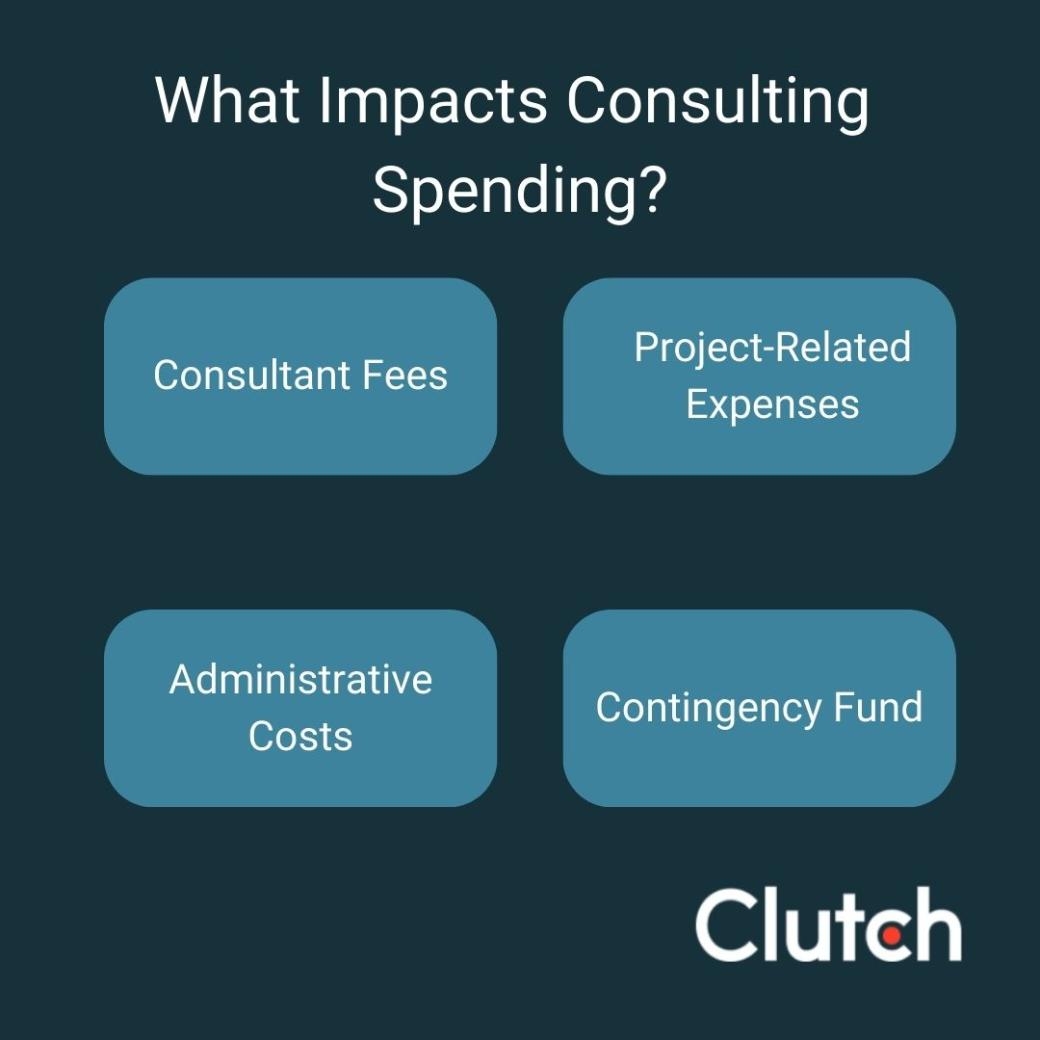![How to Create a Corporate Training Budget [With Template]](https://img.shgstatic.com/clutch-static-prod/image/resize/715x400/s3fs-public/article/f8cb0a8fb8e36a14ff257e02ce8b9475.jpg)
![How to Create a Corporate Training Budget [With Template]](https://img.shgstatic.com/clutch-static-prod/image/resize/715x400/s3fs-public/article/f8cb0a8fb8e36a14ff257e02ce8b9475.jpg)
Updated February 23, 2026
Consulting services can be known for being expensive and outside the average business’s reach. This isn’t true — there are multitudes of types of consulting services for businesses of all sizes. Discover how to budget for this work with our free budget template and step-by-step approach.
Consultants can be a game-changer for small businesses approaching major decisions. With top-of-the-line research capabilities, consulting companies are able to deliver invaluable insights that drive business strategies relating to product development, marketing, customer service, and HR.
Collaborating with consulting companies connects business owners with industry experts with veteran experience giving guidance to companies within their areas of focus. Under their direction, consulting company recommendations spark initiatives and inspire business plans.
Looking for a BPO agency?
Compare our list of top BPO companies near you
The budgeting process for consulting services is more straightforward than you may realize. Regardless, a sound budget is necessary for managing spending with consultants over time so that you can forge a sustainable relationship.
Good financial management when working with external business service providers should always start with a budget. To make sure your stakeholders and potential consulting partners are aligned, be sure to include the following categories to guide your expected spending and decision-making.

Manage consulting project budgets using the following categories:
Keeping a close eye on cash flow via budget planning is essential in the early stages of the collaboration. From startups to large corporations, separating budget items into categories helps to establish the beginnings of your project roadmap with your consulting firm.
Budgeting for consulting services sets companies up for success at the very start of their work with consulting firms. At this point, with knowledge of the three main budgeting categories for consulting services, you can begin filling in your expected spending in each part of the budget.
Mastering a consulting budget means keeping financial goals and metrics at the heart of your forecasts and evaluation. You don’t want to allocate too much budget to something that won’t need it, and you want to avoid leaving part of your work with too little budget.
Use these steps to optimize your consulting budget:
You’re setting up a budget, but don’t hop into Excel just yet. Before calculating or estimating anything, you must first truly understand why you’re hiring a consulting firm for help in the first place.
The reason is that there are so many different kinds of consultants and consulting specialization areas that will have a significant impact on the final price tag. A change management consultant, for instance, will be solving completely different problems with different tools than a marketing consultant would.
In addition to knowing what services you’re asking for, constructing your goals also involves gaining an understanding of the project’s scope and stakeholder expectations for results. Consider the know-how that will really allow you to answer your most pressing business questions and lead with that when you budget and seek support.
Consultants often charge hourly fees for their time helping clients and bill based on hours spent supporting their projects. These fees will make up the most significant portion of your budget and will largely determine how much you’re spending on consulting in total.
However, consulting firms may choose to outsource some of your work to a contractor or freelancer, depending on the scope of your work. In these cases, you’ll likely still be charged hourly for their work, but may pay different rates.
While consultant fees will cover consultants’ time, they won’t include any additional materials you may need in-house to facilitate a successful relationship.
These project-related expenditures may not be as prominent in some collaborations, but longer, more involved partnerships may necessitate supplies and tools.
Along with project expenses, you should also note down estimated spending on data collection, analysis, and research costs. This may involve market research, trends analysis and evaluation, or competitor landscape analysis.
Administrative costs can be considered miscellaneous costs or a potential contingency fund. Accounting for these in your budget will leave you some room to work with in the case of scope creep.
Miscellaneous admin costs could cover overhead and tools for better organization and communication with your consulting team if needed.
Lumping a contingency fund in with administrative costs will prepare you for the possibility of project expansion.
Sometimes, a consultant will discover issues or bring never-before-seen problems to light through their research. If you want to continue to explore these things with them past the originally scheduled deadline, a contingency fund will allow you to do so without any need for approvals or slowdown.
While budgets are often seen as tools to prepare for an upcoming project, they should be used just as much as the project proceeds. It’s important to measure your progress over time to ensure you’ll complete the work according to the expected budget.
In addition to watching your budget over time, it can also be helpful to treat budgets as a living document. As you learn more about your project needs, you should be adjusting your budget to accommodate these changes in scope, stakeholder expectations, and timelines.
Always remember to refer back to the initial goals you set out to achieve. If you’re questioning whether to adjust your budget, consider how the change will further your strides toward your objectives.

Download our free consulting services budgeting template.
From fintech to procurement, consulting services can help in just about any industry. While there are plenty of factors that impact costs, there are some that are more common and dynamic than others.
When financial planning, you’ll be able to anticipate large increases in costs by looking at how much you’re relying on the following areas:
By considering these major factors, you can tailor your deliverables or be strategic about the type of consulting firm you connect with to save precious funds. Shortening the timeline or exploring companies in different locations are sure-fire ways to manage cost in what can be an expensive industry.
Consulting companies are able to deliver first-class research and recommendations that make businesses more competitive in their respective fields. Spending too much on consulting is a common fear and can be remedied by researching costs and having a firm budget from the start.
Be sure to talk through your financial constraints with possible consulting firm partners to determine which will be best for responding to your needs in alignment with your timeline and spending capabilities.
![How to Create a Corporate Training Budget [With Template]](https://img.shgstatic.com/clutch-static-prod/image/resize/715x400/s3fs-public/article/f8cb0a8fb8e36a14ff257e02ce8b9475.jpg)

